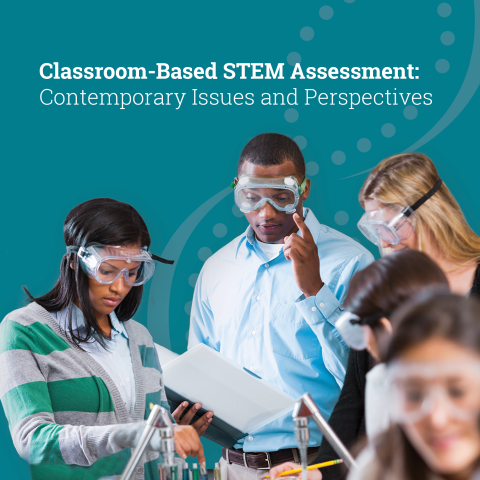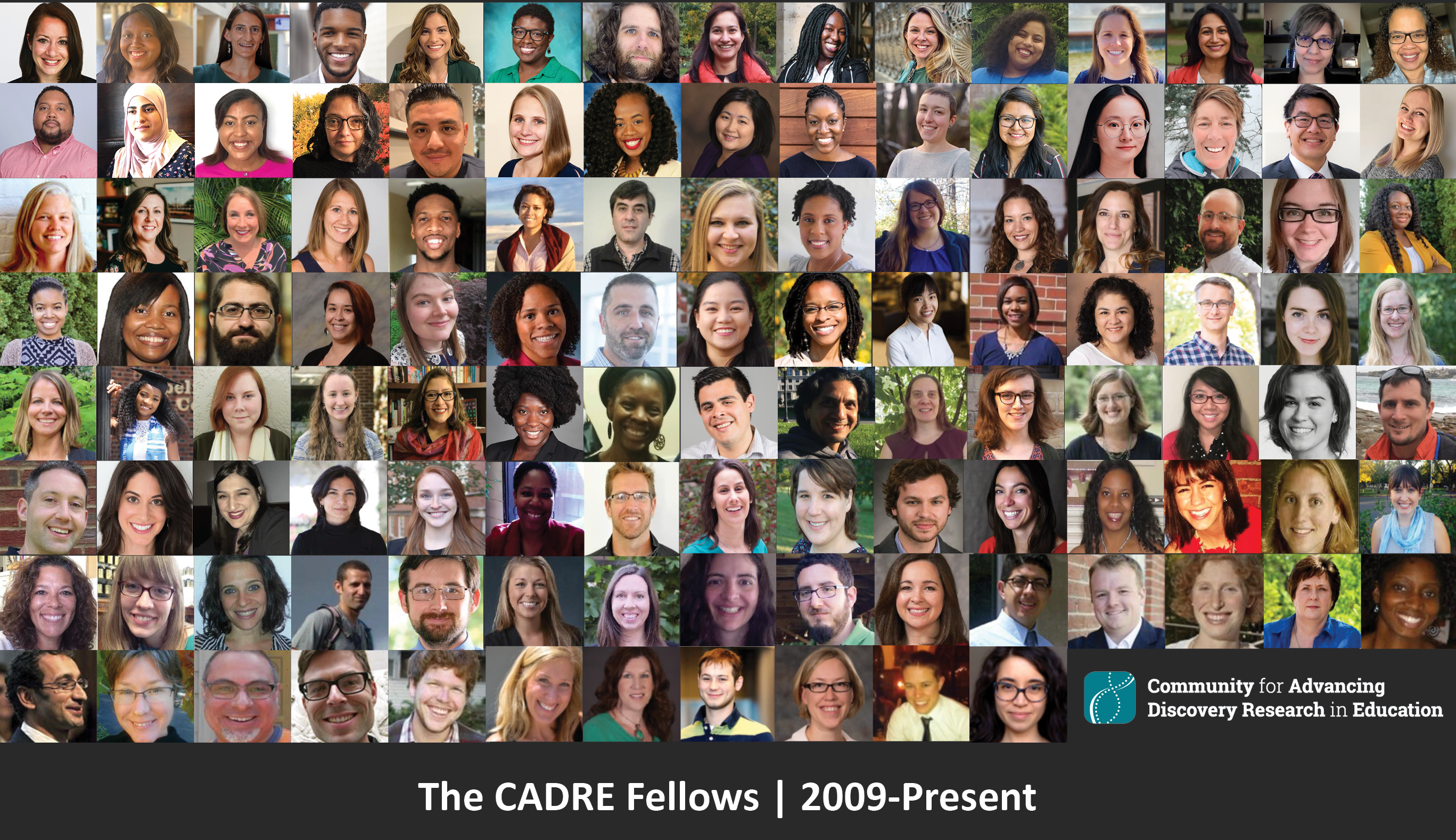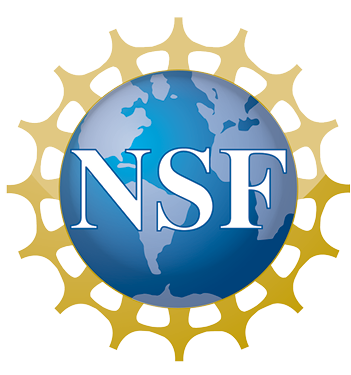Dear Colleagues,
CADRE introduces our new report, Classroom-Based STEM Assessment: Contemporary Issues and Perspectives. This report highlights the latest insights from DRK-12 program-funded research and underscores the union of classroom assessments with STEM education. We encourage you to glance through the executive summary before diving into the full report. The 2023 DRK-12 solicitation has now elevated assessment to a project type, making our report an invaluable resource for those proposing in this domain.
If you haven't yet, we recommend watching the DRK-12 solicitation webinars. They will provide comprehensive insights into changes in this new solicitation and offer guidance on proposal development and submission. But don't stop there: CADRE offers a multitude of resources, including a proposal toolkit, video podcasts with insights from proposal reviewers, and information on current and past DRK-12 projects. For more in-depth details, check out our article below, highlighting key areas in the new solicitation like partnerships and knowledge mobilization, and our Project Tip on budgets.
We are happy to welcome the newest DRK-12 awardees and invite them to register for our welcome webinar on October 4, 2023. This will be an opportunity to get familiar with CADRE services, discuss challenges often faced by new awardees, and network with peers.
Additionally, CADRE is delighted to announce the application phase for the 2024 CADRE Fellows program. Aimed at nurturing early career professionals in preK-12 STEM education research, the CADRE Fellows program offers unmatched professional growth opportunities. Learn more about this program and share the application details with potential applicants.
Catch up on these happenings: the agenda and video recordings from the August National Science Board Meeting; information about the new NSF Regional Innovation Engines; and the new National Academies report, Making STEM More Inclusive of People with Disabilities.
Best,
The CADRE Team
Classroom-Based Assessment: Contemporary Issues and Perspectives | New Report

A new CADRE report takes stock of what we currently know about using classroom assessment to benefit the teaching and learning of STEM subject matter in K-12 classrooms and discusses future directions for research. It draws inspiration from the cumulative body of research on assessment in STEM education that has accrued over the last two decades, with particular emphasis on work funded by the DRK-12 program. Focused on assessment's fusion with instruction and student success, the report spans five sections, each dissecting an important aspect of classroom assessment:
- Connecting Classroom Assessment with Learning Goals and Instruction Through Theories of Learning
- Assessment for Learning
- Equity and Justice in Classroom Assessment of STEM Subjects
- Teacher Knowledge and Practices for Assessment
- Technology-based Innovative Assessment
New DRK-12 Awards | Project List
2024 CADRE Fellows Program | Application
 CADRE is now accepting applications for the 2024 CADRE Fellows program. The program provides professional growth opportunities for early career researchers (e.g., doctoral students, postdocs, research assistants) whose work centers on diversity, equity, inclusion, and justice in preK-12 STEM education. We invite early career scholars to apply. If you are a more senior scholar and know someone who may be a good fit for the program, we encourage you to share this opportunity.
CADRE is now accepting applications for the 2024 CADRE Fellows program. The program provides professional growth opportunities for early career researchers (e.g., doctoral students, postdocs, research assistants) whose work centers on diversity, equity, inclusion, and justice in preK-12 STEM education. We invite early career scholars to apply. If you are a more senior scholar and know someone who may be a good fit for the program, we encourage you to share this opportunity.
We aim to establish a cohort of 15 Fellows that represent diverse backgrounds, experiences, interests, professional goals, institutions, and geographic regions. View the full applicant criteria.
Applications are due by 5 PM ET on Wednesday, September 27, 2023. The new Fellows cohort will be announced in November. This year’s program will run from January to July 2024.
For interested applicants with questions about the Fellows program and application process, CADRE will host an informational Q&A session on September 13, 2023, at 1:00-2:00 PM ET. Register here. Potential applicants may also direct questions to cadre@edc.org.
New DRK-12 Solicitation | Proposal Development Resources

The new DRK-12 NSF 23-596 solicitation includes several changes, such as a new partnership development project type, measurement and assessment project type, and an emphasis on knowledge mobilization. The CADRE website offers a number of resources related to these topics that may be helpful to proposal writers. Proposals are due November 8, 2023.
Partnership Resources
- CADRE Learning Series: Partnerships in Research
- 2023 DRK-12 PI Meeting Materials
- Research and Practice Partnerships Structured Poster Session (Virtual Poster Hall)
- Centering Place to Craft Meaningful Learning in Research-Practice Partnerships (Slides)
- Co-designing in Partnership as a Strategy for Supporting Justice in STEM Education (Slides)
- Creating and Sustaining Partnerships in Professional Development Projects (Slides)
- Opportunities, Obstacles, and Solutions: Collaborating with School Districts on Large Classroom-based Studies (Slides)
- Spotlights on DRK-12 Research
Measurement & Assessment Resources
- Classroom-Based STEM Assessment: Contemporary Issues and Perspectives (CADRE Report, 2023)
- 2023 DRK-12 PI Meeting Materials
- Student Assessment Structured Poster Session (Virtual Poster Hall)
- Measuring Teacher Change Structured Poster Session (Virtual Poster Hall)
- Classroom-based Assessment: Implications for Researchers and Practitioners (Slides)
- Leveraging AI Tools in STEM Education (Slides)
- Spotlights on DRK-12 Research
Knowledge Mobilization & Dissemination Resources
- CADRE Dissemination Toolkit
- 2023 DRK-12 PI Meeting Materials
Additional Proposal Development Resources
- DRK-12 Solicitation Webinars: Recordings and slides from virtual, NSF-led sessions on the DRK-12 solicitation.
- Uncovering the Hidden Curriculum of DRK-12: Video series on writing NSF proposals, managing grants, and more.
- CADRE Proposal Toolkit: A comprehensive set of resources related to aspects of developing a successful DRK-12 proposal, including those listed above.
Project Tip: Budgets for BeginnersNew education researchers often face several challenges when preparing a project budget. These challenges can arise from a combination of factors, including limited experience, uncertainty about costs, and the complexity of educational research projects. Some common challenges include: unclear scope, funding source requirements, budget estimation and justification, among others. To overcome these challenges, new education researchers can take several steps. Read More. |
|---|
Newsbites
News from NSF
- With enhancements to NSF’s Project Reporting System in Research.gov, datasets and research materials can now be added as distinct product types. View updated guidance.
- STELAR hosted Research Synthesis Webinar: The Pandemic’s Unanticipated Effects on STEM Teaching and Learning. View the recording.
- A Content Analysis of Tasks Involving Two-Dimensional Cartesian Graphs in Grade 6–8 U. S. Textbooks | Investigations in Mathematics Learning
Authors: Hwa Young Lee and Lino Guajardo - A Quasi-experimental Study of the Impact of College-Run Science, Technology, Engineering, and Mathematics (STEM) Career Days on American Students’ STEM Career Aspirations | International Journal of Science Education
Authors: Joseph A. Kitchen, Michael S. Williams, Gerhard Sonnert, and Philip Sadler - AI Can Make Education More Personal (Yes, Really) | Education Week
Authors: Jing Liu, Dora Demszky, and Heather C. Hill - Characterizing Faculty Motivation to Implement Three-Dimensional Learning | Disciplinary and Interdisciplinary Science Education Research
Authors: Paul C. Nelson, Rebecca L. Matz, Kinsey Bain, Cori L. Fata-Hartley, and Melanie M. Cooper - Coding Attitudes of Fourth-Grade Latinx Students During Distance Learning | Computer Science Education
Authors: Leiny Garcia, Miranda Parker, and Mark Warschauer - Connecting the Science of Water to Students’ Communities | The Science Teacher
Authors: Molly German, Jessica Hernandez, and Rachel Scherr - Cultivating Culturally Sustaining Integrated Science, Technology, Engineering, and Mathematics Classrooms: A Narrative Inquiry Case Study of a Science Teacher | Science Education
Authors: Khanh Q. Tran and S. Selcen Guzey - Designing a Framework for Teachers' Integration of Computational Thinking into Elementary Science | Journal of Research in Science Teaching
Authors: Lautaro Cabrera, Diane Jass Ketelhut, Kelly Mills, Heather Killen, Merijke Coenraad, Virginia L. Byrne, and Jandelyn Dawn Plane - Developing Meaning for Mathematical Expressions | Mathematics Teacher: Learning and Teaching PK-12
Authors: John K. Lannin, Christopher Austin, and David C. Geary - GPS: Teaching Shapes Inclusively | Mathematics Teacher: Learning and Teaching PK-12
Authors: Samuel Otten, Tiffany J. LaCroix, Faustina Baah, and Rebekah Hanak - “I Loved Seeing How Their Brains Worked!”—Examining the Role of Epistemic Empathy in Responsive Teaching | Journal of Teacher Education
Authors: Lama Z. Jaber, Shannon G. Davidson, and Allison Metcalf - ‘If You Wanted to Take This Model and Throw Nitrogen at It, It Would Fit’: Synthesis Approach to Modelling to Learn About Biogeochemical Cycles | International Journal of Science Education
Authors: Ayça K. Fackler and Daniel K. Capps - Incorporating Investigations of Environmental Racism into Middle School Science | Science Education
Authors: Allison Bradford, Libby Gerard, Erika Tate, Rui Li, and Marcia C. Linn - Interlocking Models in Classroom Science | Science Education
Authors: Eve Manz and Chris Georgen - Levels of Programming Concepts Used in Computing Integration Activities Across Disciplines | Journal of Technology and Teacher Education
Authors: Lauren Margulieux, Miranda C. Parker, Gozde Cetin Uzun, and Jonathan D. Cohen - Making Sense of Algebraic Expressions in Context | Mathematics Teacher: Learning and Teaching PK-12
Authors: Isabel White, Michael Foster, and Joanne Lobato - ‘Me Hizo Sentir Como Científica’: The Expressed Science Identities of Multilingual Learners in High School Biology Classrooms | International Journal of Science Education
Authors: Molly M. Staggs and Julie C. Brown - Nonmajor Students’ Use of Reflection to Enhance Biology Understanding and Relevance | Journal of College Science Teaching
Authors: Nicole J. Thomas, Tina Vo (2016-17 CADRE Fellow), and Jaime Sabel - Quest for Survival: Learning About Biomimicry and Engineering Design in First Grade | Science & Children
Authors: Samantha Richar, Arianna Pikus, Marisol Massó, Maggie Demarse, Amelia Gotwals, Tanya Wright, and Amber Bismack - Shattering the Language Barrier: English Learners and the Next Generation Science Standards | The Science Teacher
Authors: Yamil Ernesto Ruiz and Brooke A. Whitworth - Student Outcomes of Teaching About Socio-scientific Issues in Secondary Science Classrooms: Applications of EzGCM | Journal of Science Education and Technology
Authors: Kimberly Carroll Steward, David Gosselin, Mark Chandler, and Cory T. Forbes - Supporting Secondary Students’ Understanding of Earth’s Climate System and Global Climate Change Using EzGCM: A Cross-Sectional Study | Journal of Science Education and Technology
Authors: Silvia-Jessica Mostacedo-Marasovic, Amanda A. Olsen, and Cory T. Forbes - Teachers as Learners: Outdoor Elementary Science | Electronic Journal for Research in Science and Mathematics Education
Authors: Sarah J. Carrier, Aimee B. Fraulo, Kathryn T. Stevenson, M. Nils Peterson, and Laura M. Romeo - Teaching Climate Change: Fostering Understanding, Resilience, and a Commitment to Justice | Harvard Education Press
Author: Mark Windschitl - The Intricacies of the STEM Teacher Shortage | Electronic Journal for Research in Science and Mathematics Education
Authors: Sarah Quebec Fuentes and Mark A. Bloom - The Role of Contextual Knowledge in Noticing Students’ Strategies In-The-Moment | Mathematical Thinking and Learning
Authors: Michael Jarry-Shore and Hilda Borko - Theory-based Evaluation of Lesson Study Professional Development: Challenges, Opportunities, and Lessons Learned | American Journal of Evaluation
- Authors: D. Jake Follmer, Randall Groth, Jennifer Bergner, and Starlin Weaver
- Understanding Young Children’s Science Learning Through Embodied Communication Within an MR Environment | International Journal of Computer-Supported Collaborative Learning
Authors: Xintian Tu, Joshua Danish, Megan Humburg (2021-22 CADRE Fellow), Mengxi Zhou, Nitasha Mathayas, Noel Enyedy, and Tessaly Jen - Visualizing Qualitative Data: Unpacking the Complexities and Nuances of Technology-Supported Learning Processes | Educational Technology Research and Development
Authors: Shiyan Jiang, Joey Huang, and Hollylynne S. Lee - Young Children Co‐constructing Science: The Importance of Their Families and Cultural Communities | Science Education
Authors: Christine M. McWayne and Gigliana Melzi - We Borrowed That? Bringing Biomimicry to Life in the Early Childhood Classroom | Science & Children
Author: Alissa A. Lange - What Predicts Variation in Reliability and Validity of Online Peer Assessment? A Large-Scale Cross-Context Study | Journal of Computer Assisted Learning
Authors: Yao Xiong, Christian D. Schunn, and Yong Wu
Do you have news to share? Email cadre@edc.org.
Upcoming Opportunities
The following funding and publication opportunities, listed by deadline, may be of interest to you and your DRK-12 project members.
Funding

- August 30, 2023 – NSF | Improving Undergraduate STEM Education: Hispanic-Serving Institutions (HSI Program)
- October 5, 2023 – NSF | EHR Core Research (ECR:Core)
- October 10, 2023 – NSF | Racial Equity in STEM Education (EHR Racial Equity)
- NEW! October 17, 2023 – NSF | Historically Black Colleges and Universities - Excellence in Research (HBCU - EiR)
- November 8, 2023 – NSF | Discovery Research PreK-12 (DRK-12)
- December 5, 2023 – NSF | Science, Technology, Engineering and Mathematics Education Individual Postdoctoral Research Fellowships (STEMEdIPRF)
- January 10, 2024 – NSF | Advancing Informal STEM Learning (AISL)
- February 14, 2024 – NSF | Computer Science for All (CSforAll: Research and RPPs)
- February 23, 2024 – NSF | EHR Core Research: Building Capacity in STEM Education Research
- NEW! April 26, 2024 – NSF | Science, Technology, Engineering and Mathematics Education Organizational Postdoctoral Research Fellowships (STEM Ed OPRF)
Publications
 September 1, 2023 – Education Policy Analysis | Transforming School Systems: Questions of Power, Resistance, Equity, and Community (Abstract Deadline)
September 1, 2023 – Education Policy Analysis | Transforming School Systems: Questions of Power, Resistance, Equity, and Community (Abstract Deadline)- September 1, 2023 – Research in Science Education | Entrepreneurial STEM Education: Making It Happen (Extended Abstracts)
- NEW! September 30, 2023 – International Journal of Science and Mathematics Education | Giftedness and STEM Education: Towards Integrative Approaches for Developing Creativity and Talent (Abstract Deadline)
- September 30, 2023 – International Journal of Technology in Education | ChatGPT in Education
- September 30, 2023 – Learning, Media and Technology | Theorizing the Future of Generative AI in Education (Abstract Deadline)
- October 1, 2023 (Extended) – Science & Children | Assessment
- October 1, 2023 – Science Scope | Climate Change
- NEW! October 1, 2023 – The Science Teacher | AI in the Science Classroom
- October 2, 2023 – Curriculum Inquiry | Are We Ready for School Abolition? Abolition as Educational Praxis
- NEW! October 15, 2023 – CBE – Life Sciences Education | Equity, Inclusion, Access, and Justice in Biology Education (Abstract Deadline)
- November 1, 2023 – Journal of Microbiology & Biology Education | Teaching Climate Change
- November 30, 2023 – Connected Science Learning | Celebrating the Eclipse Through Collaboration
- December 1, 2023 (Extended) – Science & Children | Phenomena-Driven Instruction
- December 1, 2023 – Science Scope | Using Phenomena
- NEW! December 1, 2023 – The Science Teacher | Fostering Collaboration
- December 15, 2023 – Educational Technology & Society | Virtual Reality in Teacher Education: Innovations, Opportunities, and Challenges
- NEW! December 15, 2023 – Science & Education | Representational Plurality in Science and Science Education
- December 30, 2023 – Computers in the Schools | Digital Security in Educational Contexts: Digital Competence and Challenges for Good Practice
- February 1, 2024 – Science & Children | Expansive Science Teaching Practices
- February 1, 2024 – Science Scope | SEL in the Science Classroom
- NEW! February 1, 2024 – The Science Teacher | Favorite Science Lessons
- March 31, 2024 – Computers in the Schools | Digital Technology in PK-20 Mathematics Education
- April 1, 2024 – Science Scope | Reading in the Science Classroom
- NEW! April 1, 2024 – The Science Teacher | Equitable Science for a Socially Just Classroom
- May 30, 2024 – Educational Technology & Society | Reinventing Pedagogies and Practices of 3D Multi-User Virtual Environments (MUVEs) with the Rise of Blended Learning
- June 1, 2024 – Science Scope | Sensemaking
- NEW! June 1, 2024 – The Science Teacher | Differentiation and Inclusivity for All
- July 31, 2024 – Educational Technology & Society | Generative Artificial Intelligence in Education: Theories, Technologies, and Applications
 NEW! August 31, 2023 – 2024 ASCD Annual Conference (Call for Proposals)
NEW! August 31, 2023 – 2024 ASCD Annual Conference (Call for Proposals)- NEW! September 27, 2023 – 2024 AAPT Winter Meeting (Call for Presentations)
- NEW! September 30, 2023 – 2024 NSTA National Conference (Call for Proposals)
- NEW! October 2, 2023 – 2024 NARST Graduate Student Research Symposium (Call for Abstracts)
- October 2, 2023 – 2024 NCTM Annual Meeting & Exposition (Call for Proposals)
- NEW! October 2, 2023 – 2024 Spring CUE Conference (Call for Submissions)
- NEW! November 3, 2023 – 2024 SITE Conference (Call for Presentations)
- December 13, 2023 – 2024 CSEDU International Conference (Call for Papers)
Career & Professional Development

- September 15, 2023 – University of Maryland: Assistant Professor of Early Childhood/Early Childhood Special Education
- October 10, 2023 – University of Maryland: Faculty Position in Technology and Learning
- November 1, 2023 – University of Maryland: Assistant, Associate, or Full Professor of Dual Language/Bilingual Education
- NEW! Until filled – American Association of Physics Teachers: Director of Higher Education Programs and Grants
- NEW! Until filled – Maine Mathematics and Science Alliance: Informal STEM Education Researcher (Application review began July 15, 2023)
- Until filled – Michigan State University: Research Associate, Department of Counseling, Educational Psychology, and Special Education (Application review began May 2, 2022)
- Until filled – Purdue University, Center for Early Learning: Post Doc Research Associate (Application review began April 15, 2023)
- Until filled – The Ohio State University: Post Doctoral Scholar in Chemistry Education
- Until filled – University at Buffalo, SUNY: Postdoctoral Associate, Engineering Education
- Until filled – University of Utah: Director of the Genetic Science Learning Center; Assistant/Associate Professor (Application review began May 1, 2022)
In Case You Missed It
Highlights from recent newsletters and announcements: